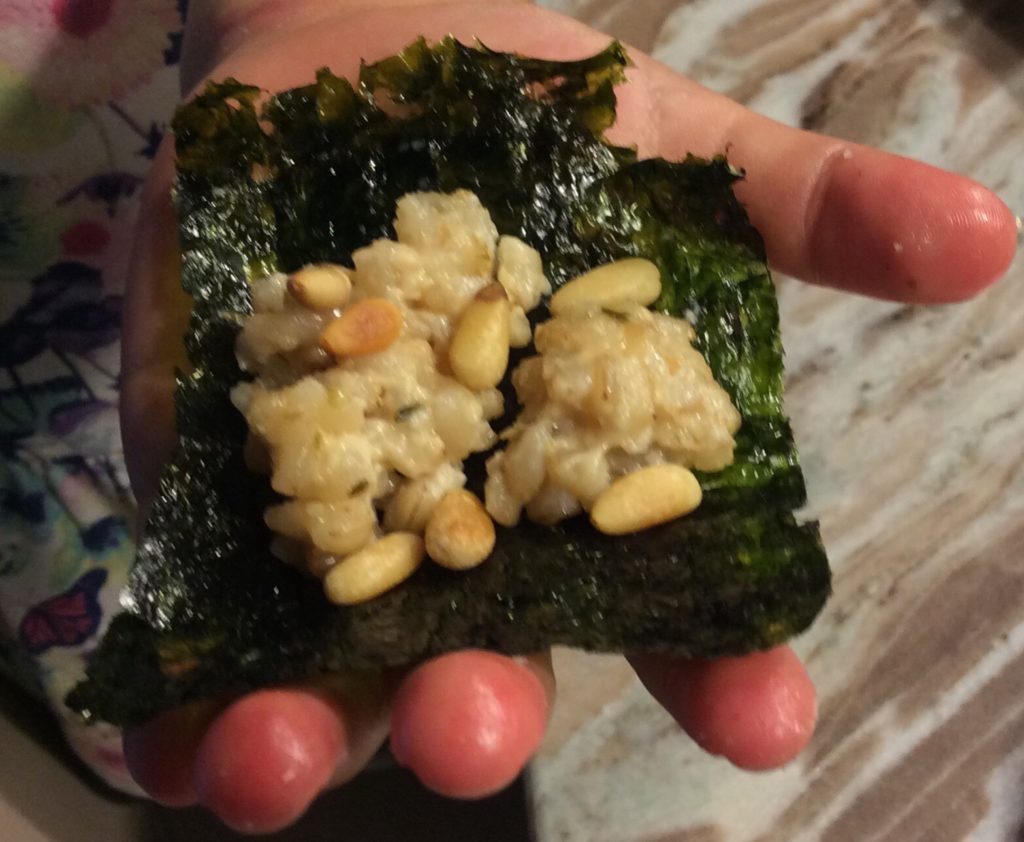Seaweed offers varying levels of protein depending on type. Red Seaweed has the most, with up to 50 grams of protein per 3.5 ounces of nori.***
Seaweed is a rich source of several vitamins, including vitamin A , vitamin C, vitamin D, vitamin E, and B vitamins.* Like kale** and some other leafy greens, seaweed also contains vitamin K, which plays a role in blood clotting.***
Seaweed contains fiber, especially soluble fiber****, which can increase satiety (the feeling of fullness) and helps to lower LDL (bad) cholesterol.
Consuming a serving of seaweed occasionally will not harm your health, but taking in this food regularly may lead to significantly high urine arsenic levels and high blood mercury levels.*****
*https://pubs.acs.org/doi/abs/10.1021/jf201114d
**http://www.berkeleywellness.com/healthy-eating/food/article/fresh-nutritious-kale
***http://www.berkeleywellness.com/healthy-eating/food/article/6-things-know-about-seaweed
****http://www.berkeleywellness.com/healthy-eating/nutrition/article/fiber-what-where-how-much
*****https://link.springer.com/article/10.1007/s00244-012-9808-x
